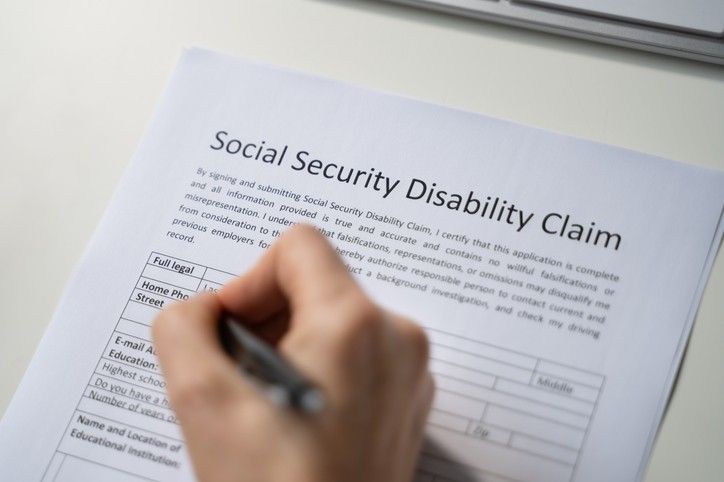Navigating the Complexities of ERISA: What You Need to Know Before Filing a Disability Claim
On Behalf of Disability Insurance Law Group | | Disability Insurance – General TopicsAt Disability Insurance Law Group, our attorneys have more than 50 years of combined experience protecting the rights of individuals in insurance benefit claims nationwide, including those with disability insurance governed by the Employee Retirement Income Security Act (ERISA).
ERISA is a federal law that sets minimum standards for most voluntarily established retirement and health plans in private industry to protect individuals in these plans. It is designed to protect the interests of employees and their beneficiaries who depend on benefits from employer-sponsored retirement, health insurance, disability insurance, life insurance, and other employee welfare benefit plans.

Unfortunately, ERISA disability claims are notoriously complex due to the intricate federal regulations and stringent procedural requirements imposed by the law. Claimants must navigate a maze of detailed documentation, strict deadlines, and specific criteria for proving disability, often facing sophisticated defenses from insurers with substantial resources and legal expertise.
The burden of proof lies heavily on the claimant, and any misstep in the process can jeopardize their claim, making professional legal guidance almost essential. We can help.
Here’s what individuals nationwide need to know about filing an ERISA disability claim.
Understand ERISA and Its Scope
ERISA sets minimum standards to ensure that plans are established and maintained fairly and financially soundly, protecting the interests of participants and their beneficiaries. It mandates that plans provide detailed information about plan features and funding, uphold fiduciary responsibilities, and establish a transparent grievance and appeals process for participants.
ERISA covers most employer-sponsored plans but does not apply to government or church plans. By setting these standards, ERISA aims to provide uniform protection across various types of benefit plans, ensuring that employees receive the benefits they are promised and have recourse if their rights are violated.
Filing an ERISA disability insurance claim requires a detailed, systematic approach to ensure compliance with the law and increase the likelihood of a successful outcome.
Understand the Importance of the ERISA Summary Plan Description
The ERISA Summary Plan Description (SPD) ensures that participants clearly understand their benefits, how to access them, and their rights under the plan. Providing an SPD is a legal requirement under ERISA, ensuring plans operate transparently and fairly.
The SPD serves as a crucial reference for participants when making decisions about their disability benefits and when navigating the claims process. Overall, the SPD is an essential tool for employees, providing the information they need to effectively utilize their disability benefits and understand their rights and obligations under the plan.
Pay attention to definitions of disability, coverage limits, waiting periods, and any exclusions.
Next Steps: Gather Documents and Prepare Your ERISA Disability Claim
Before you file an ERISA disability claim, collect all relevant medical records, including diagnoses, treatment plans, and progress notes.
Next:
- Obtain detailed letters from your doctors explaining your condition and how it affects your ability to work.
- Include any relevant medical research or guidelines supporting the treatment’s necessity.
- Gather job descriptions, performance reviews, and other work-related documents illustrating your duties and performance.
- Write a detailed personal statement describing your condition, symptoms, and how it affects your daily activities and work capabilities.
- Obtain the necessary claim forms from your plan administrator or insurer.
- Complete all required form sections carefully and accurately, ensuring no missing information.
- Ensure all forms, medical records, and supporting documents are well-organized and clearly labeled.
- Make copies of everything you submit for your records.
- File your claim promptly, adhering to any deadlines specified in your policy.
- Send your claim via certified mail with a return receipt requested, or submit it through the insurer’s online portal if available.
- Keep a log of all communications with your insurer, including phone calls, emails, and letters, noting dates, names, and details of the conversations.
- Regularly check the status of your claim and ask for updates if there are delays.
If your insurer requests additional information, provide it as quickly as possible and address any questions or concerns the insurer might have regarding your claim.
Prepare for an ERISA Disability Claim Dispute or Denial
ERISA disability claims are often disputed or denied due to the stringent standards and complex requirements imposed by the law. Insurers meticulously review claims to ensure compliance with policy definitions of disability, often demanding extensive medical documentation and proof of inability to work.
Common reasons for denial include insufficient medical evidence, lack of objective findings, missed deadlines, and discrepancies in the claimant’s work and medical history.
Additionally, insurers may have inherent conflicts of interest as they are both the payers and reviewers of claims, leading to rigorous scrutiny and a higher likelihood of disputes. This complexity necessitates thorough preparation and often professional legal assistance to navigate the claims process successfully.
We can help. In most cases, it is crucial to consult with a disability insurance claim lawyer before filing your claim to ensure all the stringent requirements are met at the application stage.
However, if you have filed your ERISA disability claim independently, and received a denial, we can still help. The administrative appeal process is rigorous, requiring claimants to present comprehensive medical evidence and meticulously adhere to the plan’s procedures before considering legal action. We can help ensure the insurer takes your claim seriously and will communicate your complete needs going forward so you do not have to be intimidated by the process.
Contact Our Skilled Disability Insurance Claims Attorneys Today for Help
Contact our skilled disability insurance claims attorneys nationwide today by calling (954)-989-9000 or online to schedule a free and confidential case assessment. We can put our over 50 years of combined experience to work for you and help ensure that your application, dispute response, or appeal meets the required standards and effectively communicates the need for disability benefits.




